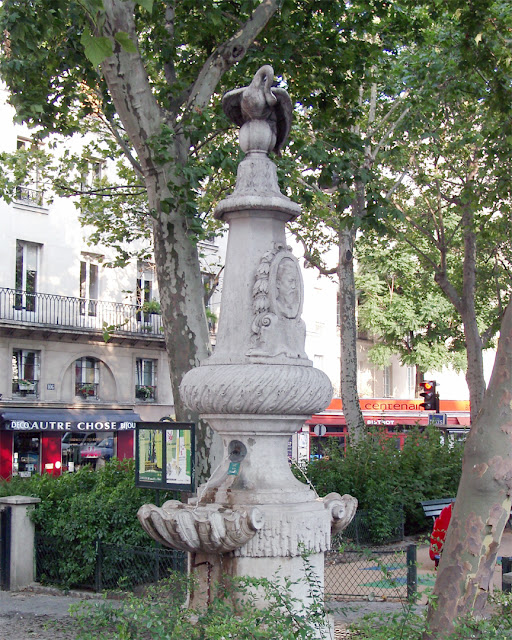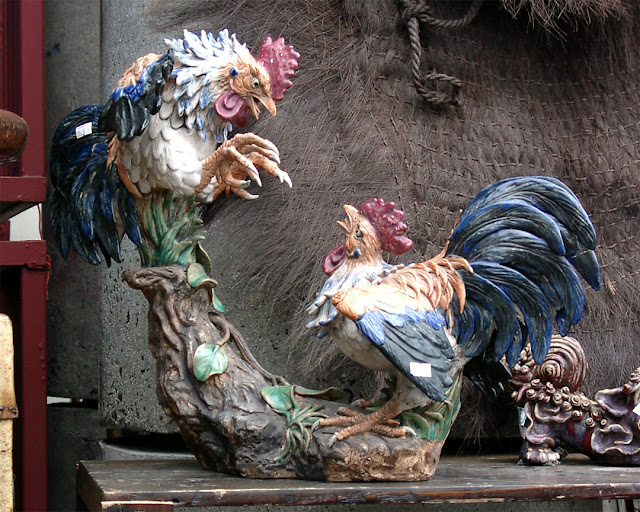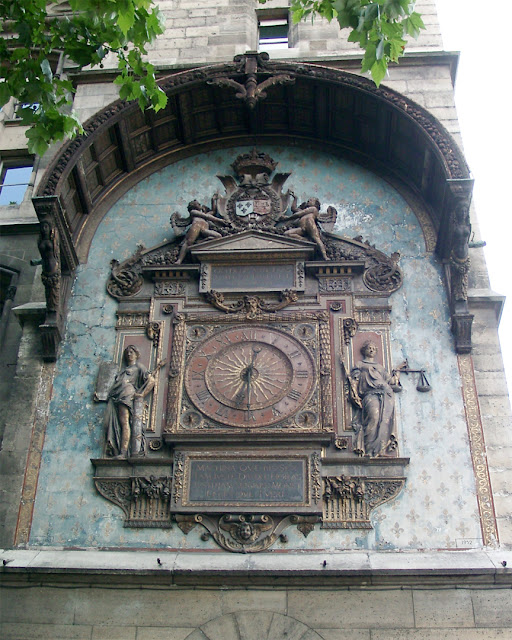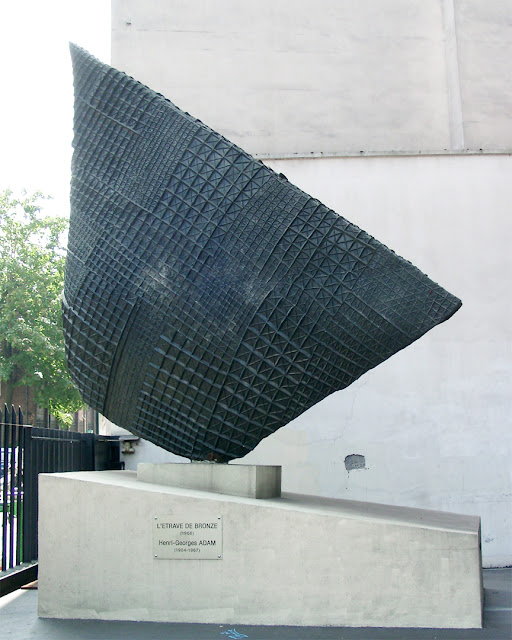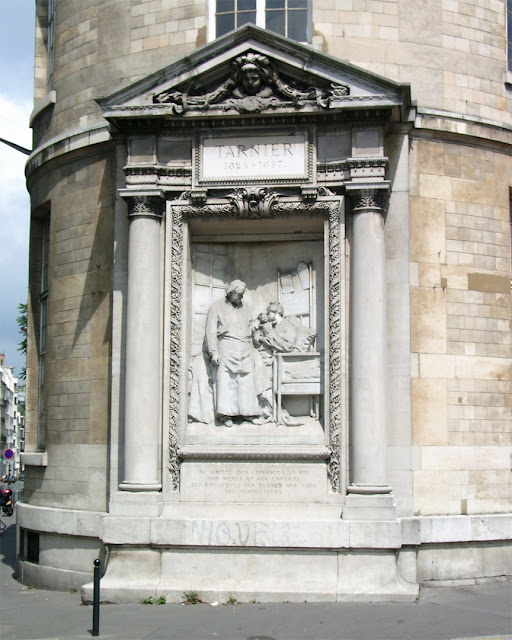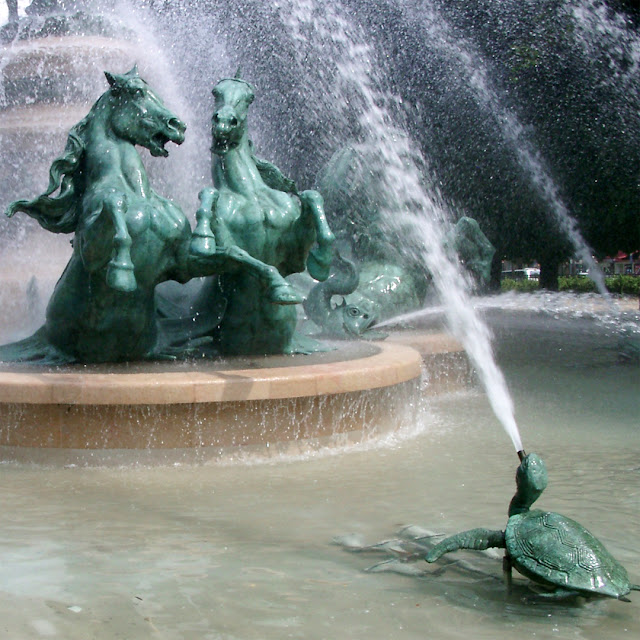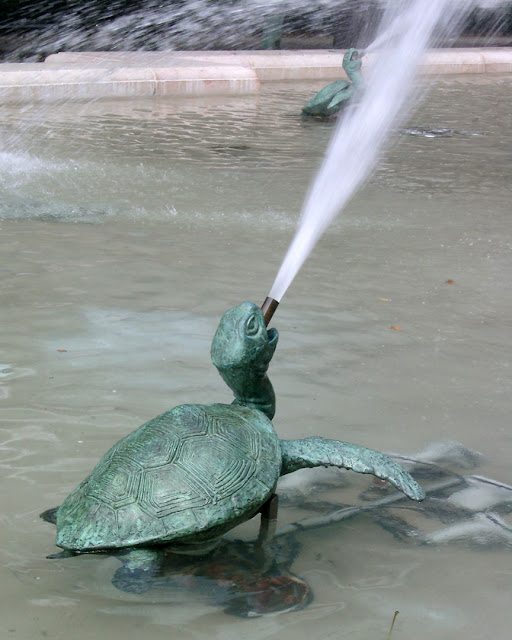Tuesday, February 28, 2006
Villa Adrienne
Villa Adrienne
Avenue du Général-Leclerc
Quartier du Petit-Montrouge, 14th arrondissement
Paris, July 2005
Monday, February 27, 2006
Avenue du Colonel-Henri-Rol-Tanguy
Avenue du Colonel-Henri-Rol-Tanguy
Place Denfert-Rochereau
Quartier du Montparnasse, 14th arrondissement
Paris, July 2005
Sunday, February 26, 2006
Hôtel de Massa
Société des gens de lettres
Hôtel de Massa
Rue du Faubourg-Saint-Jacques
Quartier du Montparnasse, 14th arrondissement
Paris, July 2005
Saturday, February 25, 2006
Lion of Belfort
One-third-scale replica of the Lion of Belfort by Bartholdi
Place Denfert-Rochereau
Quartier du Montparnasse, 14th arrondissement
Paris, July 2005
“The main square, Place Denfert-Rochereau, is planted with trees, mostly horse chestnuts, maples, and locusts, and there are three named green spaces within it as well: Square Abbé Migne, Square Jacques Antoine, and Square Claude Nicolas Ledoux. At the center of the square, in the midst of the traffic circulation, is a one-third-scale replica of the Lion of Belfort statue by Bartholdi, symbolizing the courage of the resistance raised by Colonel Denfert-Rochereau at Belfort. In the garden to one side is a monument by Jean Boucher commemorating Ludovic Trarieux.” (Place Denfert-Rochereau, Wikipedia)
Friday, February 24, 2006
Palais des glaces
Palais des glaces
Rue du Faubourg-du-Temple
Quartier de la Porte-Saint-Martin, 10th arrondissement
Paris, July 2005
Thursday, February 23, 2006
Fontaine Dejean
Fontaine Dejean
Square de la Place-Pasdeloup
Place Pasdeloup
Quartier de la Folie-Méricourt, 11th arrondissement
Paris, July 2005
Wednesday, February 22, 2006
Rue Saint-Ambroise
Building by Mario Heymann and Roger Anger, 1969
Rue Saint-Ambroise
Quartier Saint-Ambroise, 11th arrondissement
Paris, July 2005
Tuesday, February 21, 2006
Saint-Ambroise
Saint-Ambroise, 1868
Boulevard Voltaire
Quartier Saint-Ambroise, 11th arrondissement
Paris, July 2005
“Saint-Ambroise is a Roman Catholic parish church located in the 11th arrondissement of Paris. It is dedicated to St. Ambrose. Saint-Ambroise gave the neighborhood its name, the quartier Saint-Ambroise. Its length is 87 metres, and the towers are 68 metres high. Located at 71 Boulevard Voltaire, Saint-Ambroise was built between 1863 and 1868, shortly after the construction of the new Boulevard du Prince-Eugène, which was later renamed Boulevard Voltaire. It replaced a church called Notre-Dame de la Procession which was located close to the path of the new street at about the location of the public garden. The church was designed by architect Théodore Ballu. Saint-Ambroise was consecrated by cardinal Léon-Adolphe Amette on 7 December 1910.” (Saint-Ambroise, Wikipedia)
Monday, February 20, 2006
Colonne Morris
Colonne Morris (Morris column)
Boulevard Richard-Lenoir
Quartier Saint-Ambroise, 11th arrondissement
Paris, July 2005
“Advertising columns or Morris columns are cylindrical outdoor sidewalk structures with a characteristic style that are used for advertising and other purposes. They are common throughout Germany including its capital Berlin, where the first 100 columns were installed in 1855. Advertising columns were invented by the German printer Ernst Litfaß in 1854. Therefore, they are known as Litfaßsäulen (Litfass columns). In France, the columns are called colonnes Morris after Gabriel Morris, a printer, who held the concession for advertising in 1868. They were originally built by La Société Fermière des Colonnes Morris. Today, they are mostly built and maintained by the JCDecaux company, which purchased the original company in 1986.” (Advertising column, Wikipedia)
Sunday, February 19, 2006
Rue Paul-Abadie
École maternelle Paul Abadie
Rue Paul-Abadie
Quartier des Grandes-Carrières, 18th arrondissement
Paris, July 2005
Saturday, February 18, 2006
Friday, February 17, 2006
Thursday, February 16, 2006
Wednesday, February 15, 2006
Tuesday, February 14, 2006
Monday, February 13, 2006
Gare du Nord
Gare du Nord (North Station)
Place Napoléon-III
Quartier Saint-Vincent-de-Paul, 10th arrondissement
Paris, July 2005
Sunday, February 12, 2006
Palais de justice de Paris
Palais de justice de Paris
Boulevard du Palais
Quartier Saint-Germain-l'Auxerrois, 1st arrondissement
Paris, July 2005
Saturday, February 11, 2006
Friday, February 10, 2006
The turret of Félix Potin
The turret
Félix Potin building by Paul Auscher, 1904
Rue de Rennes / Rue Blaise-Desgoffe
Quartier Notre-Dame-des-Champs, 6th arrondissement
Paris, July 2005
Thursday, February 9, 2006
Félix Potin building
Félix Potin building by Paul Auscher, 1904
Rue de Rennes / Rue Blaise-Desgoffe
Quartier Notre-Dame-des-Champs, 6th arrondissement
Paris, July 2005
Wednesday, February 8, 2006
Tuesday, February 7, 2006
L’Etrave de bronze
“L’Etrave de bronze” by Henri-Georges Adam, 1965
Rue d'Assas
Quartier Notre-Dame-des-Champs, 6th arrondissement
Paris, July 2005
“Henri-Georges Adam (14 January 1904 – 27 August 1967) was a French engraver and non-figurative sculptor of the École de Paris, who was also involved in the creation of numerous monumental tapestries. His work in these three areas is regarded as among the most extensive of the twentieth century.” (Henri-Georges Adam, Wikipedia)
Monday, February 6, 2006
Sunday, February 5, 2006
Stéphane Tarnier
Monument to Stéphane Tarnier by Denys Puech, 1905
Rue d'Assas / Avenue de l'Observatoire
Quartier de l'Odéon, 6th arrondissement
Paris, July 2005
“Stéphane Étienne Tarnier (29 April 1828 – 23 November 1897) was a French obstetrician who was a native of Aiserey. He studied and practiced medicine in Paris, and is often considered as doyen of French obstetrics during the second half of the nineteenth century. Some of his better-known assistants were obstetricians Pierre-Constant Budin (1846–1907), Paul Bar (1853–1945), Pierre-Victor-Adolphe Auvard (1855–1941) and Adolphe Pinard (1844–1934). Tarnier is remembered for his work involving the perinatal aspects of obstetrics, and in particular, the treatment and well-being of premature infants. In the 1870s he realized that keeping a constant temperature was not sufficient for a premature infant's survival. He believed that isolation, hygiene, appropriate feeding, and a warm, humid environment were also necessary. Inspired by a device used to incubate poultry, Tarnier introduced prototypes of infant incubators to the Paris Maternité in 1881. These devices were basically wooden boxes with glass lids and compartments that contained hot-water bottles. He called his ‘baby-warming device’ a ‘couveuse’, and through it Tarnier was responsible for a 28% decrease in infant mortality over a three-year period at the Paris Maternité.” (Stéphane Tarnier, Wikipedia)
Saturday, February 4, 2006
Fontaine des Quatre-Parties-du-Monde
Fontaine des Quatre-Parties-du-Monde (Fontaine de l'Observatoire) by Gabriel Davioud
Avenue de l'Observatoire
Quartier de l'Odéon, 6th arrondissement
Paris, July 2005
“The Fontaine de l'Observatoire is a monumental fountain located in the Jardin Marco Polo, south of the Jardin du Luxembourg in the 6th arrondissement of Paris, with sculpture by Jean-Baptiste Carpeaux. It was dedicated in 1874. It is also known as the Fontaine des Quatre-Parties-du-Monde, for the four parts of the world embodied by its female figures, or simply the Fontaine Carpeaux.” (Fontaine de l'Observatoire, Wikipedia)
Friday, February 3, 2006
Thursday, February 2, 2006
Subscribe to:
Comments (Atom)






